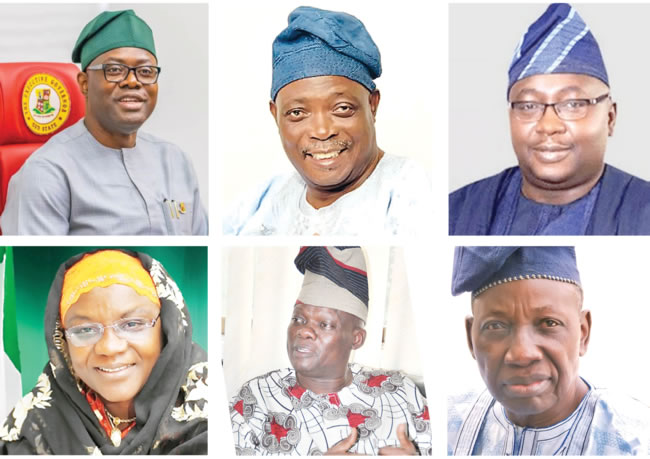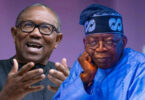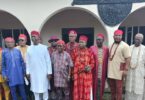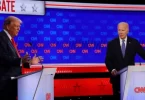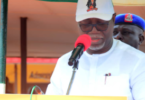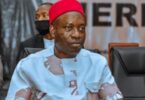In this piece, WALE AKINSELURE writes on the dynamics in Oyo politics over the years and how the 2023 election altered the usual.
For ages, the politics of Oyo State is renowned for the role of gatekeepers cum godfathers. These gatekeepers or stakeholders assume such strong position such that they are seen as people who dictate the tide of politics in the state. In fact, for persons seeking political offices, the more gatekeepers you have on your side, the greater your chances of winning. As a result, political office seekers do everything possible to curry the support of gatekeepers. The power brokers, as many often call them, comprise both state and non-state actors. They not only determine who assumes public office but also whether or not public office holders will have a smooth stay in office. They even determine whether a person will see out his or her tenure.
For every electoral cycle, there are usually emergent, displaced or stronger gatekeepers. A change in political dynamics usually accompanies any change in electoral cycle. Gatekeepers device all means, whether legit or not, to achieve their goal, that is, winning election. Dwelling on their experience and information at their disposal, they know which polling unit, or wards that they should give a closer attention. These stakeholders have boys they could easily mobilize to cause disruptions at polling units, snatch ballot boxes or rig elections,. While a contestant embarks on tours to convince people and seek votes, there are the stakeholders who do the underground work, even mobilise the electorate to exercise their franchise.. Speaking on how gatekeepers shape Oyo politics, Chief Niyi Akintola, Senior Advocate of Nigeria (SAN) noted that they wield awesome influence in the contest for political power. A veteran of major political contests over the years, the legal practitioner added that structure under which a candidate contests sometimes is immaterial if he has the express blessing of a class of power brokers. “In Oyo State, it is not the political party under which a candidate contests an election that determines who comes on board. If you get the blessing of the gate-keepers, you are home and dry. If you are out of tune with the gate-keepers, you are out, even if you contest under the platform of the best political party,” he emphasised.
For many years, in Oyo politics, some gatekeepers have had their way with some attaining the status of godfathers. They hinge this status on years of proving that they can influence who becomes what in the politics of the state. Politicians hold on or switch allegiances to queue behind them ahead of each electoral cycle. While the power brokers have had their way over the electorate for many years, the people themselves, in recent years, seem to have assumed a position of taking their destiny into their own hands. But sometimes, this is usually done at a price for both the so-called influential politicians and the people (allies).
Prior to 1999 and after, notable gatekeepers in the Oyo politics included late Pa Emmanuel Alayande, late Busari Adelakun (also called Eruobodo), who assumed the title, strongman of Ibadan politics in the second Republic late Lamidi Adedibu, also known as strongman of Ibadan politics in his lifetime late Supo Akinwale, Elder Wole Oyelese, Dr Saka Balogun, Pa Jacob Adetoro, Chief Richard Akinjide, Brigadier Gen Raji Rasaki (retd), Dr Omololu Olunloyo, Senator Rashidi Ladoja, Chief Adegoke Adelabu, Chief Mobolanle Abaje, Chief Adisa Akinloye, Chief Micheal Koleoso.
Pa Alayande was a founding member of the Action Group; he ran for governorship in 1978 but lost the primary to Chief Bola Ige. He later served as Special Adviser on Education to Ige. Alayade was an educationist and humanist par excellence. He was one of those reported to have appealed to then President Olusegun Obasanjo to stop the impeachment process against Ladoja. Busari Adelakun was a very influential politician in the 80s; he died in 1984 after the military takeover which toppled the government of Dr Omololu Olunloyo. Several people refer to Adelakun as the political father of Adedibu in that he was a dominant figure in the politics of the state in the 80s. Adelakun was a formidable politician whose support was almost enough to win elections. He was a strong pillar of support for Chief Ige in their days in the defunct Unity Party of Nigeria (UPN). He has served as his commissioner in Bola Ige’s government until political differences in the run-up to the 1983 general elections led to his defection to the opposition National Party of Nigeria (NPN). Adelakun, lived up to being referred to as Eruobodo (fearless), and he left the legacy of deep, victorious political practice to Adedibu.
Adegoke Adelabu was a brilliant orator and intellectually gifted personality, who coined the expression, “Africa in Ebullition.” Between 1951 and 1958, Ibadan’s politics was more or less synonymous with the life of Adelabu. For young men like Richard Akinjide then to have any place in Ibadan politics, they had to literally speaking worship in the shrine of Adelabu. Chief Akinloye was founder of the Ibadan People’s Party (IPP) and chairman of the National Party of Nigeria (NPN) while Chief Mobolanle Agbaje was first Ibadan man to become a lawyer. Chief Ladoke Akintola’s influence was gargantuan as he even became Premier of the then Western region.
For many years, until he died on June 11, 2008, Alhaji Adedibu indeed was the “strong man of Ibadan politics.” He was a strong religious and community leader and dogged grassroots mobiliser. He had a legacy of stomach infrastructure, seamless political maneuverings and intrigues. A former chairman of the Peoples Democratic Party (PDP), Dr Ahmadu Ali once described the late Adedibu as “garrison commander of Ibadan politics.” At that time, contestants, whether for governorship, National Assembly or state Assembly positions, would usually visit the Molete residence of Adedibu seeking his endorsement in their bid for public office.
Those public office seekers, who left Adedibu’s residence without his approval of their ambition, usually knew their hope and aspiration hung in the balance. In 2003, Adedibu was believed to have been pivotal in Senator Rasheed Ladoja’s emergence as governor of the state. Before then, Ladoja also became a senator allegedly though the strong support and efforts of mercurial Adedibu. Ladoja becoming a senator was said to be Adedibu rewarding him for the logistic assistance to the then gubernatorial candidate of the Social Democratic Party (SDP), Chief Kolapo Ishola at a very dire period. Adedibu and Ladoja, however, later fell out over irreconcilable differences. Under the proclamation that: “The Oyos do not serve a governor twice,” several governors were believed to have failed in their second term bid due to the enormous influence of Adedibu. Governors, who failed to secure a second term were Chief Ige, Alhaji Lamidi Adesina, Dr Oluloyo, Senator Ladoja and Chief Adebayo Alao-Akala.
Throughout his lifetime, Adedibu seemed an authority as his godfatherism style was laden with a semblance of force and cohension.
Another key gatekeeper in the politics of Oyo State was Alhaji Azeez Arisekola-Alao. He was a pseudo politician as he never mounted the soapbox to seek votes for an elective office, but was the pillar behind the ambition of others. He was indeed an influential entrepreneur and prominent philanthropist. Though he was a prominent philanthropist, he did not run a public kitchen as Adedibu did.
For several years, politicians seeking public offices also sought to know the thinking of the traditional rulers across the state, especially the late Alaafin of Oyo, Oba Lamidi Adeyemi and the late Soun of Ogbomoso, Oba Jimoh Oyewumi. Aspirants also considered the disposition of the Central Council of Ibadan Indigenes (CCII); the Olubadan-in-Council; Chief Micheal Koleoso; Senator Rashidi Ladoja; late chief Adebayo Alao-Akala and late Senator Abiola Ajimobi.
But, with the death of Oba Adeyemi, Oba Oyewumi, Ajimobi and Alao-Akala coupled with the earlier death of Adedibu and Arisekola-Alao, the Oyo political space was left open for new, emerging gatekeepers to exert their influence. Among the gatekeepers that held sway from 1999 till date include Senator Rashidi Ladoja, Elder Oyelese, Pa Jacob Adetoro, Dr Olunloyo, Dr Balogun, Chief Koleoso.
With the death of some influential gatekeepers and waning influence of others, the dynamics of Oyo politics changed ahead of the 2023 elections. Governor Seyi Makinde, who sought a second term, then, certainly knew that with the power, position and influence as incumbent governor, the ball was in his court to take charge of the Oyo political landscape. The battle for the soul of the state was among the Governor Makinde, Senator Teslim Folarin, Chief Adebayo Adelabu, Honourable Mulikat Akande-Adeola, Senator Ayo Adeseun, Makinde’s former deputy, Mr Rauf Olaniyan, Alhaji Bisi Olopoeyan, just as Senator Monsurat Sunmonu, Senator Hosea Agboola, Mr Bayo Lawal also were keen to prove their mettle. The G-5 agitation, which Governor Makinde was a part of, also altered the dynamics. While the governor campaigned for himself and party, the Peoples Democratic Party (PDP) at the state level, his body language at the federal level smelled support for the presidential candidate of the All Progressives Congress (APC), Senator Bola Tinubu. Pleadings by especially the contestants for National Assembly seats on the PDP platform from the state for Makinde to clearly declare support for the PDP presidential candidate, Alhaji Atiku Abubakar so as not to affect their own chances yielded no result. And while Makinde won at the state level, all three senatorial candidates of the PDP from the state lost. The G-5 romance with Tinubu became clearer after the election with constant meetings between the G5 and president Tinubu.
Makinde’s second term victory with a landslide was evidence that the dynamics of politics in the state changed after the 2023 elections. Makinde not just captured the hearts of majority of Oyo people with his kind of words, actions, policies, which some term populist, but he also ‘crushed’ others who may want to share the space with him. Having wormed himself into the people’s hearts, Makinde’s words sounded as the gospel truth to many. This was coupled with Makinde being so lucky that the once major gatekeepers were no more.
Makinde is not just leader of the PDP and the state but his romance with Tinubu also curtailed great incursions of the APC.
The Oyo APC went into the last electoral battle with a divided house while its governorship candidate, Teslim Folarin, was also opposed by ogas at the top. Several APC faithful in the state decry that Folarin still has a challenge of commanding the confidence and trust of the party at the top, party members in the state, some of whom have left the party, and the people of Oyo State. The Oyo APC could not exert any influence on who Tinubu chose as minister from the state as Chief Adebayo Adelabu of the Accord Party, though a former APC member, was picked. It’s back to the drawing board for the Oyo APC. The lack of a rallying figure in the party, according to some analysts, gave Governor Makinde the advantage to dominate the Oyo political landscape. His influence, stature and gait looms large over the political arena Many who were defeated by Makinde in the last elections have been singing on a low key.
But some see the forthcoming local government election in the state as an opportunity for the APC to bounce back into reckoning. Party faithful argued that the fortunes of the party would dwindle the more should it decide not to participate in the local government election. According to the publicity secretary, Oyo APC, Mr Olawale Sadare, the APC meant business, remained popular across all 33 local government areas of the state, would give the PDP a run for its money and was out to win. On possibility of the Minister of power, Chief Adebayo Adelabu returning to the APC, Sadare simply replied, “the more the merrier. As many are willing to join or return to the party are welcome.” However, some APC members noted that the essence of participating in the local government election was for the party to win a few councils while conceding that with the style of local government elections in the country, the PDP would still have the majority. There are also a lot of expectations of the three senators, all on the platform of the APC: Sarafadeen Alli, Yunus Akintunde and Fatai Buhari to return the party to a strong footing in the state. The emergence of a new national leadership of the party, led by Dr Abdullahi Ganduje apart from the party producing the president, is what is brewing the commitment of some Oyo APC members to the party. They hold that the party would circumvent its current challenges to be stronger ahead of the next general election. Indeed some analysts hold that so many circumstances both at state and federal level presently favour Makinde holding sway for more time. However, they note that the dynamics again changed in the build-up to the next general election. Moreover, there are still those aggrieved members of the PDP; there are those presently shut out in the polity who may be strategising for a comeback or taking their pound of flesh; there are those in opposition who would also be out to outsmart the incumbent ahead of the forthcoming election. Indeed the battle to take over the reins of power will begin next year, particularly with Makinde not contesting for governorship anymore though it is expected that he will still want to satisfy his own political interests moving forward.
Somehow, the dynamics of Oyo politics is fast-changing, especially with the young Turks gradually waltzing through the political arena as the future beckons. Buoyed by an enormous war chest, coupled with a tacit backing from the power brokers at centre, the Young Turks might be among those to watch when the battle for the next political dispensation begins to take shape and form.
. TheWitness

